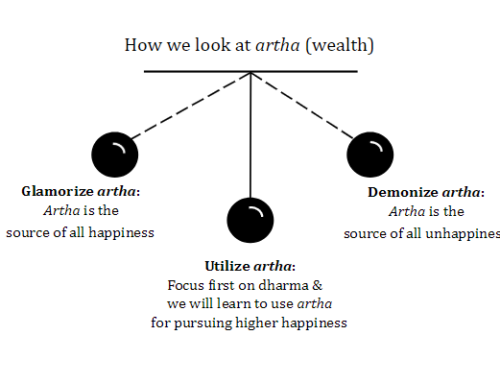When we form a friendship with someone, we will sooner or later face the first test of friendship: our readiness to sacrifice for that friendship. We may have planned to do something, but if our friend has an important engagement and wants us to be a part of it, are we ready to put aside our plan for our friend’s sake? While this test of friendship can be easily understood, there is another test that is often overlooked or misunderstood.
Every healthy relationship, including a relationship of friendship, is characterized by two features: bonds and boundaries. Bonds are built by the activities we do in that relationship, while boundaries refer to the ethical parameters within which we do those activities. The second test of friendship centers on boundaries.
Suppose our friend is facing a financial crisis and needs help from us. If we are committed to that friendship, we would naturally seek to help them according to our capacity. However, if our friend asks us to join them in a scheme to rob a bank, does being committed to friendship mean going along with that scheme? Not at all. If our friend asks, “What kind of friend are you that you won’t do this for me?” then that question is simply an attempt to abuse friendship for emotional blackmail. Instead of trying to answer that question, we need to raise a counter-question: “What kind of friend are you who asks me to do this for you?”
A friend who asks us to compromise our ethics for the sake of friendship is not truly our friend. Refusing to participate in their unethical scheme doesn’t mean we are giving up on the friendship, even if they perceive it that way. By respecting our boundaries, we are preserving what makes that friendship worthwhile — the purpose of friendship is not just to do things together; it is also to help each other do the right things and avoid the wrong things.
The Bhagavad-gita indicates that such authentic friendship is often lacking among ungodly people. These people surround themselves with yes-men, lackeys and bootlickers who acquiesce to and even applaud their destructive tendencies (16.14). But such friendship leads to both friends’ degeneration towards hellish states of mind and eventually hellish states of being. Indeed, such a relationship is largely a mimicry of friendship that ends up making a mockery of the true purpose of friendship.
Summary:
When a friend asks us to compromise our ethics, we can counter the question, “What kind of friend are you that you won’t do this for me?” with the counter question, “What kind of friend are you that you want me to do this for you?”
Think it over:
- What are the two tests of friendship?
- How can friendship make unwarranted demands, and how can those demands be countered?
- What is wrong with the apprenticeships that ungodly, demoniac people have?
Audio explanation of article is here: https://gitadaily.substack.com/p/the-second-test-of-friendship
***
16.14: The demoniac person thinks: “… He is my enemy, and I have killed him, and my other enemies will also be killed. I am the lord of everything. I am the enjoyer. I am perfect, powerful and happy.”
To know more about this verse, please click on the image



Leave A Comment